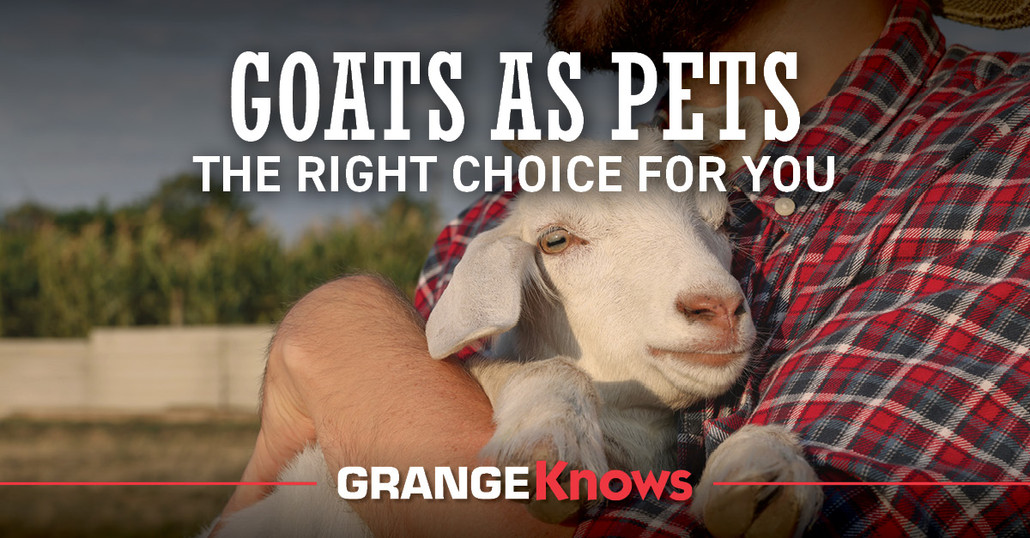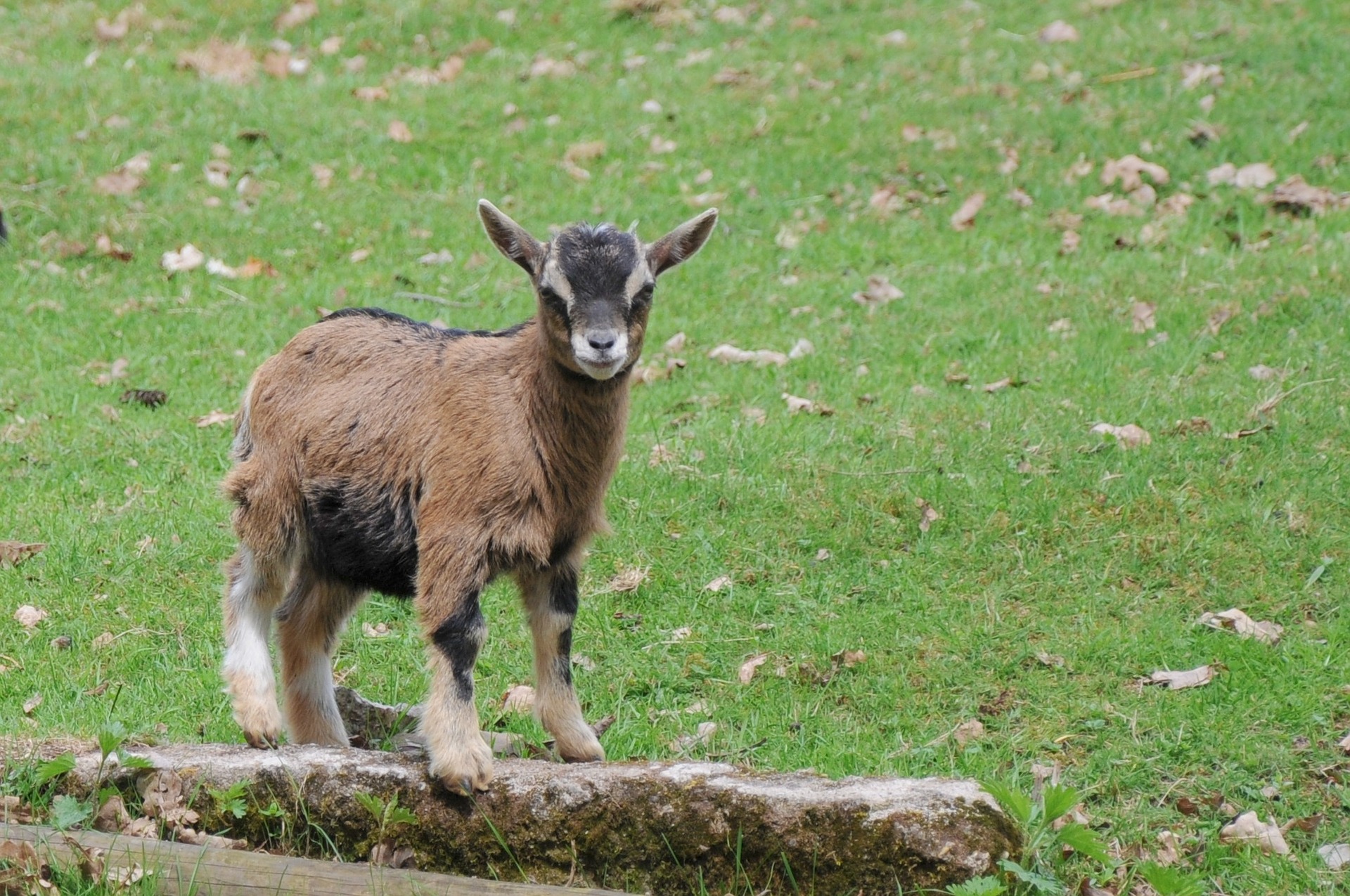
Goats as Pets — The Right Choice for You?
Posted by Grange Co-op on 14th Jun 2022
What to Know Before You Get a Goat
Species Matters
There are about 200 breeds of domestic goats and multiple species of wild goats and mountain goats. Sizes vary among domestic goat species, ranging in weight from 50 pounds to 300 pounds. Nigerian dwarf goats are among the smallest, with pygmy goats coming in close behind. These two species are the most common ones kept as pets.
It isn’t just their small size that makes these goats popular as pets. They are also lovable, playful, and have a calm, even temperament. They are good with people of all ages, including small children. Not all species have the same temperament, so make sure the animal you bring home has the personality traits you would want in a pet.
Goats Are Herding Animals
Goats demand companionship, and they do better when they aren’t alone. So start with at least two, even if you have other animals. You should also divide your attention equally among them as they can get jealous and possibly aggressive if they think the other goat is favored.
Check Your Zoning
If you live within town or city limits, check to see if there are restrictions against having goats of a specific size or weight. Also, you might be limited in how close you can keep a goat to your neighbors. Goats are a better choice for homes in rural areas with plenty of acreage.
Give Them Their Space
All goats require pasture and shelter from the elements. Give them a minimum of 10 square feet of indoor space and 200 square feet of pasture per goat. Also, the shelter should be draft-free and closed at night to keep out predators.
Goats Are Picky Eaters
People often think that goats graze on grass just as horses do. Actually, they are foragers instead of grazers. They prefer to eat weeds and brush. Most likely, you will need to supplement your goat’s diet with goat feed to ensure it gets the balanced nutrition it needs. Goats also require minerals to support healthy body functions. Finally, you will need a supply of fresh hay for your goat.
Look Out for Parasites
Animals that have limited space are especially prone to getting parasites. If you have a herd, try to rotate them from one pasture to another to reduce their risk of infection. Otherwise, you might need to keep them in a dry lot part of the time.
If your goat shows signs of parasite infection, before treating, always have the veterinarian examine your goat to ensure it is a worm infection.
If your goats get infected, you will need to treat them with a goat dewormer. Some symptoms of infections with worms include paleness around the eyes, loss of weight, or coughing. Always seek advice and instruction from your veterinarian for correct treatment.
You Can Train Them
Goats are intelligent and can learn to follow on a lead or answer when you call their name. Start with a halter or collar and lead to get your new pet started with basic handling. Then, you can move on to teaching them some manners. This will make your goat better behaved around you and your family and any visitors to your home.
Tend to Their Grooming Needs
Goats need regular brushing with a dog brush or curry comb. This is because they shed and pick up dirt and burs. You also need to keep their hooves trimmed. Allowing them to get too long can cause hooves to curl or crack, leading to pain and possible infection. For this type of care, we recommend using a farrier to avoid possibly injuring your goat.
Bucks Smell Worse Than Females
Male goats are called bucks, and females are does. Intact bucks have scent glands that they spray along with their urine during rut (the doe’s estrous cycle.) This gives them a strong, musky odor. If you aren’t breeding your goats, you might want to stick with does or wethers (castrated male goats) as the smell from bucks can be very pungent.
Housebreaking Isn’t a Good Idea
If you’re looking for a house pet that you can train like a dog, a goat isn’t the best choice. They are ruminants that urinate and defecate almost continuously. Housebreaking them would require an abundance of time and patience that might not pay off in the end.
They Require a Long-Term Commitment
Goats usually live between 12 and 15 years. So make sure you’re ready to commit to providing the best goat care to your new pet for as long as you have it.
It Matters Where You Get Your Goat
Getting an animal from a reputable breeder helps ensure it’s had good preventive healthcare. First, visit the breeder in person to see where they are keeping their goats. Now that you know more about what it takes to keep goats happy and healthy, you can observe whether the herd is receiving good care.
Does a Goat Fit Your Needs for a Pet?

If you think a goat is a good fit, get everything you need to deliver excellent goat care before your new pet arrives. Shop at Grange Co-op for goat feed, blankets, minerals, goat dewormer, first aid kits and a lot more. Goats are fun, energetic pets that provide entertainment and companionship for a long time. If you have additional questions, visit us in-store to speak with one of our Grange Livestock Experts for more information.
